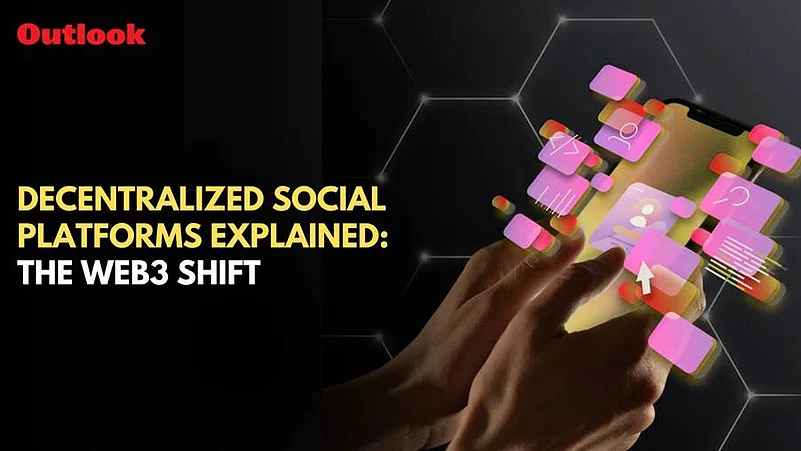Social media is now a part of our everyday lives. We share, connect, create, and engage with the world on different platforms. But over the past few years, something subtle is taking place—a transition towards something known as decentralized social platforms. These platforms are part of what is typically considered "Web3," the newer method of utilizing the internet that provides individuals with greater control and ownership of their data, content, and identity.
In this piece, we're going to dive into what decentralized social platforms are, how they differ from our current traditional platforms, and why folks are beginning to sit up and take notice of this Web3 shift. This is not complicated tech or industry speak—it's about getting a sense for where social media may be going and what that will mean for us, the consumers.
Understanding the Current Social Media Structure
Let's spend a minute learning how today's social media operates before we jump into what is changing. Most of the big platforms—whether for pictures, videos, or messages—are controlled by big corporations. Those corporations control everything: your account, your information, your content you view, and even the policies regarding what you can or cannot share.
The problem, here, is control. If a firm chooses to take away your post or even delete your account, there isn't much you can do about it. Algorithms determine what you view based on what's best for the platform. And after a while, the value you produce on the platform doesn't go back to you—it remains with the company.
This model of central control has come under fire for fears regarding privacy, censorship, and equality. That's where decentralization comes in.
What are Decentralized Social Platforms?
In the center of decentralized platforms is a much different concept: no company or government controls it all. Rather than being supported by a single server, decentralized platforms rely on a network of computers (usually referred to as nodes) that collaborate. These platforms are generally developed with blockchain technology or other peer-to-peer systems.
This shift impacts a number of major areas:
Ownership of Data: On a decentralized platform, users own their content and personal data. It’s stored in a way that only the user can control, not the platform.
Control Over Content: Instead of one company deciding what stays or goes, content moderation is often handled by the community or through transparent rules.
Open Participation: Anyone can contribute and even develop tools or applications around the platform without the approval of a central firm.
Such platforms are typically censors-resistant and return more power to the users. But with that comes opportunities, as well as challenges.
Why Is Web3 Making a Difference?
Web3 is a movement to rethink how we utilize the internet. It promotes decentralization, openness, and empowerment of users. Translated to social media, it involves a departure from closed, ad-based ecosystems to open, user-centric environments.
With the Web3 approach, your online identity is something that you actually own. You can transfer your profile and content with you from one application to another and even from one platform to another, which contrasts greatly with the system we have today where every app stores your data independently. This change also allows for creators to potentially get rewarded directly without the need for middlemen or advertising algorithms.
For instance, rather than a platform making money off your work, you could be rewarded with tokens or virtual points for your contribution, creativity, or engagement within the community. Although this model is not yet fully developed, it potentially represents a new universe of ways in which online communities operate.
Challenges and Ongoing Questions
Decentralized platforms are promising but are at a nascent stage. There are genuine problems to be addressed. Some of these are user experience, moderation of content, security, and the necessity for well-defined governance mechanisms. Most decentralized platforms are not as slick or seamless as the ones we are familiar with today, which makes it more difficult for individuals to transition.
There are also significant conversations underway regarding who controls the rules, how communities regulate themselves, and how safety can be maintained without excessive power being returned to any one group. These are not simple questions, and the solutions are still being developed.
But even with these issues, the path is clear: individuals are starting to challenge centralized models and seek out alternatives that make them more powerful in their digital lives.
Looking Ahead: What It Means for Everyday Users
You don’t need to be a developer or a blockchain expert to understand the value of owning your data or choosing where your content lives. As decentralized social platforms grow and improve, everyday users may find more choices, more privacy, and more control in their hands.
This change isn't about swapping apps. It's about swapping relationships—between platforms and users, creators and audiences, and communities and the rules that govern them.
Whether or not decentralized platforms do away with the ones we have now remains to be seen. But it's changing. And as people become more attuned to how digital systems operate, the need for fairness, transparency, and autonomy will keep growing.














